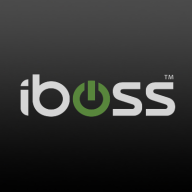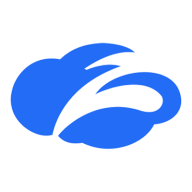


Check Point Harmony SASE and Zscaler Zero Trust Exchange Platform are prominent players in the cloud-based security solutions category. Check Point Harmony SASE appears to have an edge due to its robust integration with ZTNA, centralized management features, and real-time threat intelligence which enhances overall security and user experience. In contrast, Zscaler is noted for its secure web gateways and authentication processes.
Features: Check Point Harmony SASE integrates Zero Trust Network Access (ZTNA), offers centralized management, and leverages real-time threat intelligence from Check Point ThreatCloud to improve security and user experience. Zscaler is recognized for its secure web gateways, integrated authentication processes, and comprehensive secure access solutions.
Room for Improvement: Check Point Harmony SASE users have noted that integration with third-party identity providers, management portal UX, and report features need enhancements. Zscaler needs to improve platform integration, address latency issues, scalability, and offer better support responsiveness for legacy systems.
Ease of Deployment and Customer Service: Both Check Point Harmony SASE and Zscaler Zero Trust Exchange Platform support various cloud deployment models. Check Point Harmony SASE is noted for ease of deployment and responsive customer service. Zscaler, despite having a robust support structure, experiences varied customer service quality, with reports of slower responses and higher costs.
Pricing and ROI: Check Point Harmony SASE, though considered slightly expensive, is justified by its security features and positive ROI in reducing incidents. Zscaler is perceived as more costly, with additional features increasing the price. Although users acknowledge Zscaler's value, its high cost can limit ROI for smaller companies.
| Product | Market Share (%) |
|---|---|
| Zscaler Zero Trust Exchange Platform | 10.3% |
| Check Point Harmony SASE (formerly Perimeter 81) | 4.5% |
| iboss | 2.3% |
| Other | 82.9% |


| Company Size | Count |
|---|---|
| Small Business | 6 |
| Midsize Enterprise | 6 |
| Large Enterprise | 5 |
| Company Size | Count |
|---|---|
| Small Business | 53 |
| Midsize Enterprise | 19 |
| Large Enterprise | 14 |
| Company Size | Count |
|---|---|
| Small Business | 16 |
| Midsize Enterprise | 12 |
| Large Enterprise | 41 |
Iboss offers a comprehensive cloud-based security platform valued for its scalability and autonomous features, ensuring robust security with easy deployment and management capabilities.
Renowned for its robust security architecture, Iboss integrates seamlessly within diverse networks, delivering efficient granular filtering and advanced content categorization. Its single pane of glass console provides ease of management, allowing rapid scalability suitable for rapidly deploying environments. Operates in BYOD setups due to inline filtering without device installation. Integration with cloud-based applications enhances user control, and features like SASE, SSL inspection, and ChatGPT risk protection stand as highlights. Despite its strengths, users have pointed out areas for enhancement like direct navigation in reports, SSL decryption, and better cloud integration while having room to improve data loss prevention.
What are the most important features of Iboss?The usage of Iboss spans educational institutions, specifically K-12, to enforce internet policies, protect data, and support remote work environments. It provides web filtering and security frameworks to ensure safe browsing. Its platform-as-a-service model offers flexibility for both cloud-based and on-premises requirements, integrating seamlessly to deliver enhanced security features suitable for various deployment needs including zero trust, CASB, and network security for work-from-home setups.
Check Point Harmony SASE, formerly Perimeter 81, offers robust security features like split tunneling, MFA, and Zero Trust Network Access focused on secure remote access and optimized connectivity for remote teams.
Check Point Harmony SASE delivers advanced security through a user-friendly interface, efficient VPN connections, and a centralized management console. It enhances security with real-time threat intelligence from ThreatCloud and traffic management via built-in optimization. Firewall as a Service and Secure Web Gateway safeguard against unauthorized access and phishing. While users seek enhanced networking customizations and better integration with identity providers, there's an emphasis on improving reporting, real-time analytics, and policy management. Requests also include a Chrome extension, traffic balancing, and simplified configuration to address some resource-intensive aspects.
What are the key features of Check Point Harmony SASE?
How can organizations benefit from using Check Point Harmony SASE?
Check Point Harmony SASE is used across industries for secure remote access and connectivity, protecting sensitive data, and managing access to corporate resources. It is ideal for those with hybrid cloud models and requires comprehensive security measures combined with existing IT infrastructures to meet specific industry demands.
Zscaler Zero Trust Exchange enhances security with seamless cloud-based connectivity and VPN-less operation, offering integration with multiple identity providers and advanced security features, suitable for remote work environments.
Zscaler Zero Trust Exchange provides secure, adaptive connectivity without traditional VPNs, allowing organizations to replace legacy systems and bolster remote work security. The platform offers cloud-based protection, single sign-on, dynamic URL categorization, and scalable solutions. While advanced security features like DLP and threat protection enhance data protection, users may face issues with speed, connectivity, and some customization options. Integration challenges, latency due to multi-tenant hosting, reporting delays, and licensing costs require consideration. It supports secure internet access and private application security, ensuring traffic control and data compliance.
What are the key features of Zscaler Zero Trust Exchange?
What are the benefits of using Zscaler Zero Trust Exchange?
Zscaler Zero Trust Exchange is deployed across industries to secure remote access and enforce zero trust principles. Organizations in finance, healthcare, and technology sectors utilize it for secure internet access and visibility into cloud applications, enhancing performance and compliance in dynamic environments.
We monitor all Secure Access Service Edge (SASE) reviews to prevent fraudulent reviews and keep review quality high. We do not post reviews by company employees or direct competitors. We validate each review for authenticity via cross-reference with LinkedIn, and personal follow-up with the reviewer when necessary.